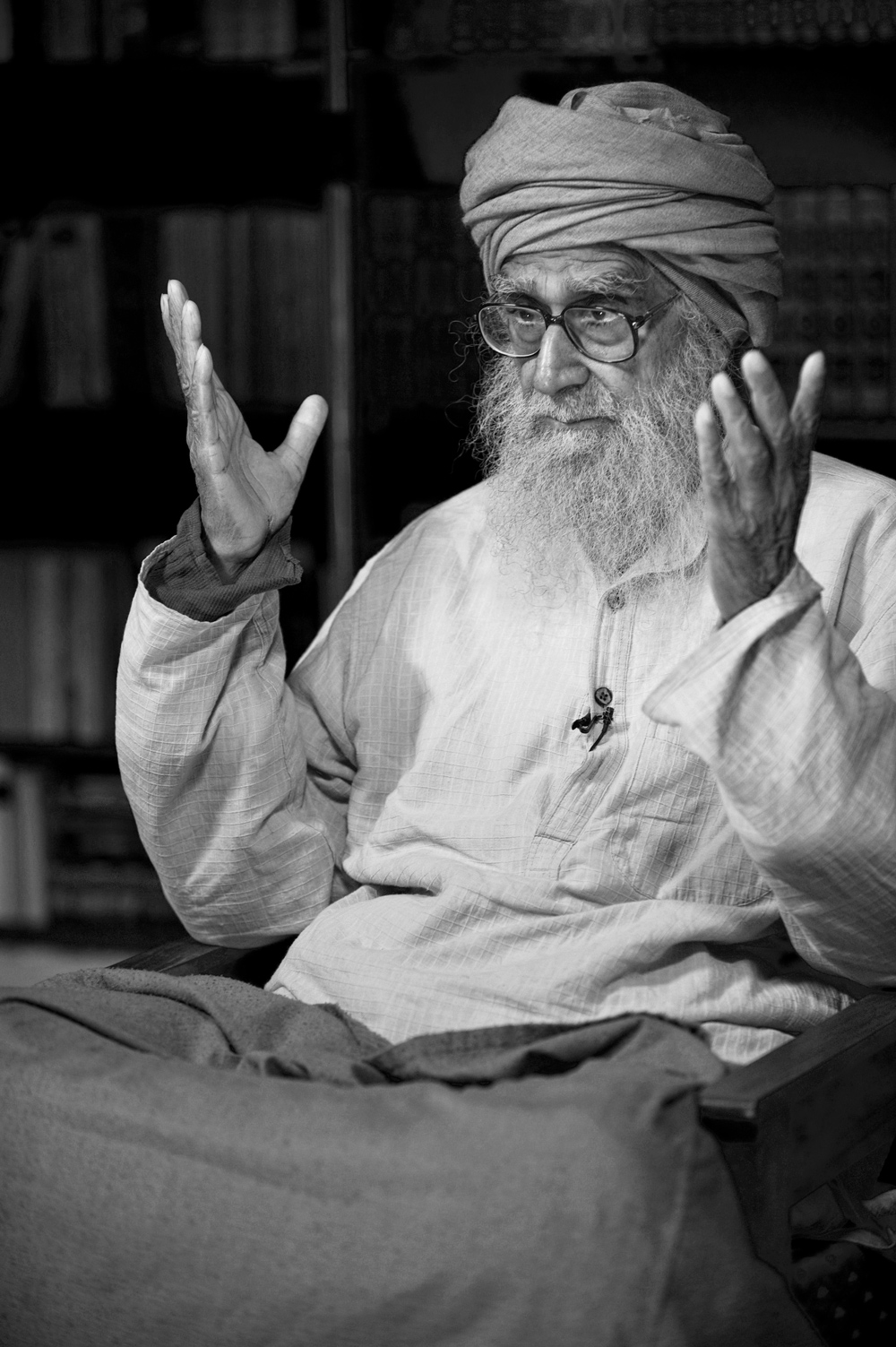ASK MAULANA
Your Questions Answered
 You say that the formula for managing religious differences should be to ‘follow one religion and respect all’.
You say that the formula for managing religious differences should be to ‘follow one religion and respect all’.
Can you please explain what ‘respecting’ all religions means in the Islamic context, given that there are several beliefs/practices in other religions that are condemned by Islam—e.g. idol worship and polytheism in popular Hinduism, the Christian Trinity, the Jain and Buddhist denial of a creator God? Since these beliefs and practices in these religions are condemned by Islam, in what sense do you, as a Muslim, respect these religions?
Islam believes in discussion, and not in condemnation. In every field, there is an accepted principle that while giving respect to the other party, there should be scientific discussion on differences. The same is required in religious matters. Mutual respect is a matter of social ethics. At the same time, it is possible for people to hold different opinions. If there is difference of opinion, there should be peaceful dialogue on it. Differences are not an evil. Differences are a means for intellectual development. If there is no difference, there cannot be any discussion, and hence no intellectual development. Both parties must admit this natural fact. Discussion is not bad. But it is certainly wrong to turn discussions into debates.
You give a great deal of stress to intellectual development, and in fact you seem to suggest that it is similar to, or perhaps identical with, spiritual development.
What exactly do you mean by ‘intellectual development’? How is your understanding of ‘intellectual development’ different from how, say, an atheist intellectual or academic would define it?
I believe in mind-based spirituality. So, according to my perception, both spiritual development and intellectual development are one and the same. There is no real difference between the two.
Intellectual development means such sharing between two persons that leads to broadening of their mental horizons. In such a discussion, the two may not necessarily reach an agreement. However, they both can develop intellectually even without reaching an agreement.
This kind of objective discussion is common among scientists. However, this is not seen in the field of humanities. I have adopted the scientific model of discussion in the field of humanities.
There is a difference between the concept of intellectual development of a scholar and that of a religious person. But there is one thing that is common between them. If the two are sincere, they would both become seekers. The only condition for this is that they should be free of bias. If this is so, then they both are journeying towards the same goal, of finding the truth. I consider myself a religious person and at the same time I also consider myself a scholar. You can find examples of this in my writings.
You often quote this phrase that appears in the Quran: as-sulh khair, to stress the importance of peace or reconciliation in Islam. But some critics say that this phrase appears in the context of marital dispute (THE QURAN 4:128), and may not be of general applicability in the sense of inter-community peace, as you seem to interpret it .
Further, they might argue that if sulh-khair were meant to be of general applicability, and not just for marital disputes, the phrase would have appeared many more times in the Quran and in contexts that relate specifically to inter-community and international relations. And so, they might argue that your interpretation of this phrase is faulty. How would you respond?
All principles of Islam, including as-sulh khair, have a particular application and a general application. This pattern is evident throughout the Quran. The way of Islam is to speak of a general principle through
a particular reference. This concept has been used again and again in the Quran with different wordings. For example, in a verse the Quran says, “As long as they act straight with you, act straight with them.” (THE QURAN 9:7) Here, “straight” means to be peaceful.
The Quran condemns other communities' wrong religious practices and beliefs. Some critics say that this encourages Muslims to think negatively about other people. How would you respond to their claim?
Present-day Muslims have become negative with regard to political and communal issues. According to Islam, political and communal issues are not issues at all. Making these issues one’s concern is a result of communal thinking and not Islamic thinking.
In Islam there is no condemnation. Rather, there is analysis of ideological issues. There is a clear difference between condemnation and analysis. ‘Condemnation’ is a negative term, while ‘analysis’ is completely a positive term. Analysis is also done in scientific matters and Islam applies this principle to religious issues.





